They are also the ones who lead, inspire and create a humane, creative and integrated learning environment. Therefore, fostering digital capacity, foreign languages and modern management skills becomes a top priority, contributing to building a teaching force that can adapt to new challenges.
Positive steps
Ahead of the 2025-2026 school year, the Department of Education and Training of Ho Chi Minh City has launched a series of training activities for teachers and administrators. From competitions on applying artificial intelligence (AI) to lesson design to digital competency training courses, the goal is to promote digital transformation across the sector and improve the quality of teaching and learning.
Mr. Dinh Van Trinh - Principal of Nguyen Hien Secondary School (Tan Thoi Hiep Ward, Ho Chi Minh City), commented that the city has made remarkable progress in building a team of teachers and schools. Policy and training programs have been implemented to overcome limitations, aiming at a modern and flexible teaching force in the face of innovation trends.
Basically, most schools in the city ensure enough teachers. However, there is still a local shortage in specific subjects such as English, Information Technology, Music and Fine Arts. At the same time, Ho Chi Minh City is actively improving the qualifications of teachers according to a clear roadmap.
“With the goal of improving quality, the city focuses on three pillars: Digital competence, foreign languages and modern management skills. These programs not only help teachers update teaching methods but also create a quality educational environment, attracting talented young human resources. However, difficulties in financial resources, arranging time for teachers to participate in training and the shortage of teachers in some subjects still need to be resolved,” Mr. Trinh shared.
Currently, Ho Chi Minh City has been organizing many training courses on digital transformation in education, and supporting teachers to become familiar with technology tools such as classroom management software and presentation applications. Despite the positive start, the level of digital skills proficiency among teachers is still uneven. Applying technology creatively and personalizing the learning experience for students remains a big challenge.
Regarding foreign language proficiency, the Department of Education and Training of Ho Chi Minh City surveyed the English proficiency of all teachers from primary to high school levels. The results showed that many teachers had not reached the B1 standard according to the European Reference Framework, while the gap between English teachers and teachers of other subjects was still quite large.
On that basis, from April to December 2025, English and IT training courses for teachers and managers will be organized to help them use foreign languages effectively in professional activities and integrated teaching. When completing this plan, Ho Chi Minh City expects the teaching staff to not only be good at their profession but also flexible and creative in applying technology and foreign languages, meeting the educational requirements in the digital age.
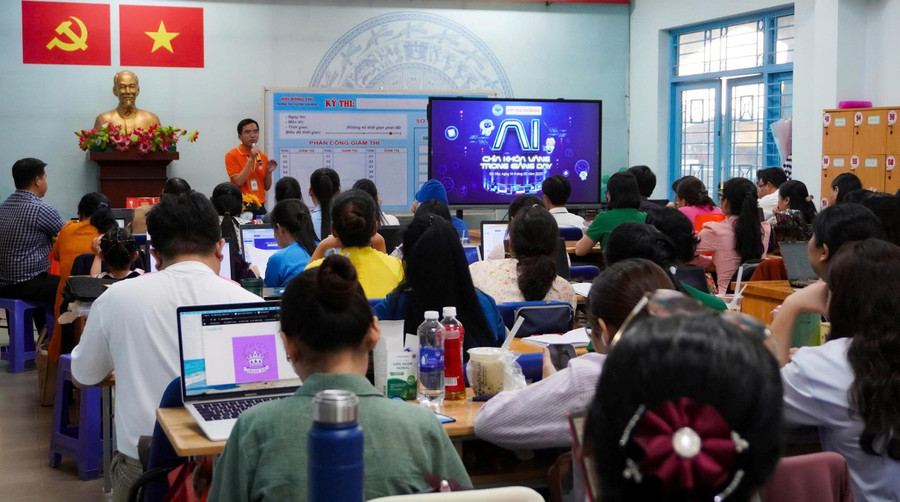
Transform with digital transformation
In the 4.0 era, technology has become an inseparable part of management and teaching. Mr. Huynh Thanh Phu, Principal of Bui Thi Xuan High School (Ben Thanh Ward, Ho Chi Minh City), affirmed that educational managers not only need to master the skills of organization, assignment of work and human resource management, but also need to inspire teachers and students to work towards a common goal. Leadership with vision, example and the ability to create motivation is the key to sustainable development of the school.
“For teachers, they need to be proficient in digital teaching platforms, artificial intelligence applications and online tools to improve the effectiveness of communication and interaction with students. Teachers are no longer the ones who monopolize knowledge but become guides, suggesters and companions.
They need skills to design dynamic lessons, know how to apply information technology, and combine active learning methods - from project-based learning, experiential learning to personalized learning. This ability turns the classroom into a place to inspire creativity, train critical thinking and develop students comprehensively," Mr. Phu shared.
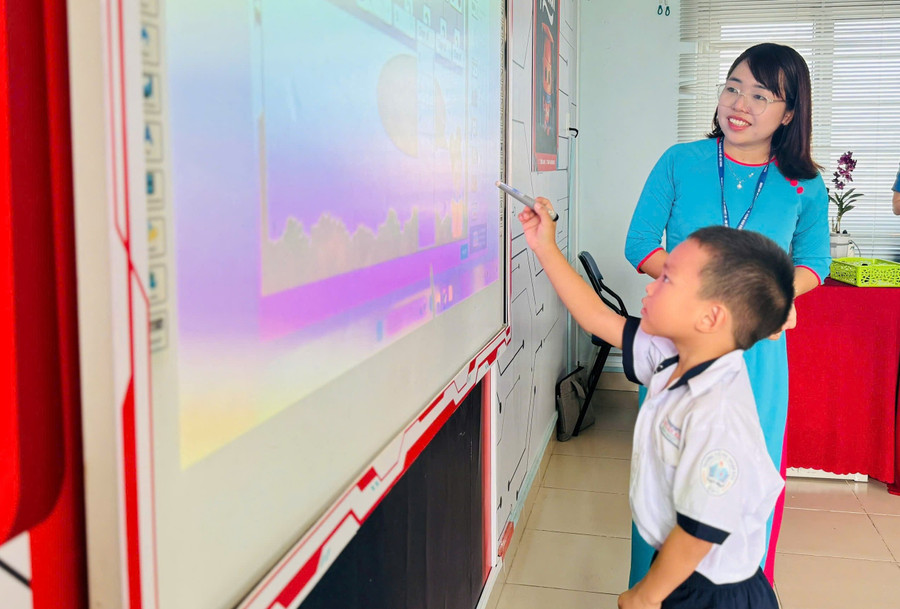
From a management perspective, Mr. Dinh Van Trinh emphasized that managers are not only administrators but also educational leaders with strategic vision. They must build, implement and evaluate educational strategies in line with the city's overall goals. Digital transformation capacity plays a key role: from digitizing records, managing student data to deploying online school management systems (LMS).
“In addition, managers must know how to motivate, train and develop teachers professionally, build a positive working culture, encourage creativity and innovation in teaching. In the context of international integration, they need to be proficient in English or other foreign languages to access advanced management materials and methods, and at the same time create conditions for developing foreign language skills for both teachers and students. Especially when faced with unforeseen situations, the ability to analyze, make timely decisions and solve problems thoroughly is a vital factor,” Mr. Trinh assessed.
For teachers, Mr. Vo Minh Nghia - Nguyen Du High School (Hoa Hung Ward, Ho Chi Minh City), said that the merger requires each teacher to maintain a strong mentality to become a spiritual support for students. Teachers should not spread anxiety but should see the merger as an opportunity to overcome challenges, thereby creating a successful breakthrough. Teachers need to proactively learn, exchange and expand relationships.
“In the 2025-2026 school year, teachers must actively renew themselves by learning about the education program and policies in the old locality, both increasing their professional knowledge and expanding their connections. When exams and competitions change, teachers in Ho Chi Minh City need to innovate their teaching methods so that students are not confused with the new program.
Besides, improving IT and foreign language skills is a continuous task, not only after the merger but also mentioned before. In the globalization trend, these two skills are the lifeblood for teachers to accompany the future generation of students - global citizens", Mr. Nghia expressed.
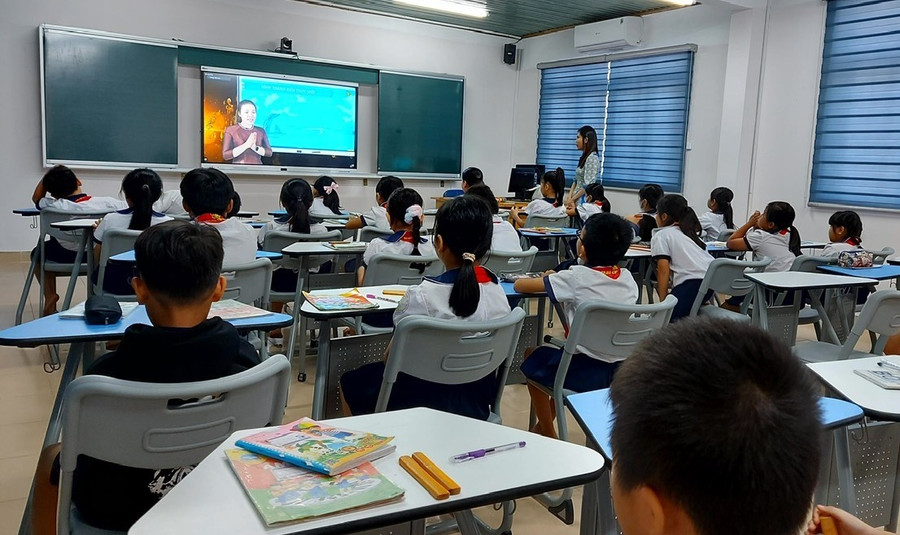
Motivate teachers to contribute
According to Mr. Huynh Thanh Phu, to attract young, dedicated human resources to teach in areas where there is a shortage, policies need to be built synchronously, both to solve material needs and to touch their aspirations to contribute and develop their careers. Financial incentives must be truly convincing, not just stopping at the basic salary.
The state and local authorities should design special allowances, support housing, transportation, and even create favorable conditions for teachers to get a job. When life is stable, young people will feel secure to stay and contribute long-term. In difficult areas, if teachers are only considered as "teachers of letters" but lack infrastructure, equipment, and training opportunities, they will easily become discouraged.
On the contrary, when young teachers participate in professional development, postgraduate studies and academic exchanges, they will consider this a valuable training journey. This not only improves the quality of teaching but also retains talent.
Mr. Phu also emphasized the need for a transparent and fair mechanism to recognize and promote the teaching staff. In particular, contributions in difficult areas are highly appreciated in competition records, promotion and appointment. When young teachers see their efforts recognized, they will have more motivation to stick with it. A transparent reward system will add confidence to the teaching staff.
Spiritual support policies are also important. Organizing cultural and social activities, building a united community of young teachers and connecting with charitable organizations and businesses will help them feel the value of dedication. Finally, a long-term vision is needed, considering attracting young teachers not just as "filling the gap" but as investing in the future. When policies touch the needs of life, self-affirmation and the desire to contribute, young human resources will certainly find a reason to come, stay and shine.
Mr. Vo Minh Nghia believes that the education sector should encourage young teachers to work in remote areas of Ho Chi Minh City with comprehensive preferential policies and attractive benefits. Excellent students graduating from Ho Chi Minh City University of Education and Saigon University should be supported when teaching in these areas for a period of 36 to 48 months.
Increasing the young workforce is necessary to eliminate the post-merger educational imbalance and avoid the concentration of “good teachers” in the central area. Students of teacher training colleges now receive many support policies, so it is obvious that they will serve the locality upon graduation.
In addition to material support, attention must be paid to spiritual means so that teachers can work with peace of mind and not feel disadvantaged compared to their central colleagues. Continuous professional connection between regions will create a happy relationship in the industry, helping teachers to be confident and stay long-term.
After administrative consolidation, Ho Chi Minh City became the locality with the largest scale of schools in the country with more than 3,500 educational establishments; nearly 2.6 million students and more than 100,000 administrators and teachers. The Ho Chi Minh City education sector is not only diverse in scale but also outstanding in quality. However, the difference in education quality between regions poses a specific and universal development strategy problem, aiming to improve quality in "lowland areas" and create an educational model worthy of a megacity.
Source: https://giaoducthoidai.vn/trien-khai-nhiem-vu-nam-hoc-moi-phat-trien-doi-ngu-nha-giao-thoi-dai-moi-post749169.html



![[Photo] Soldiers guard the fire and protect the forest](https://vphoto.vietnam.vn/thumb/1200x675/vietnam/resource/IMAGE/2025/9/27/7cab6a2afcf543558a98f4d87e9aaf95)
















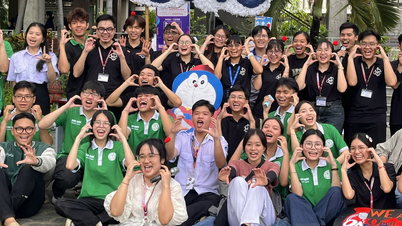
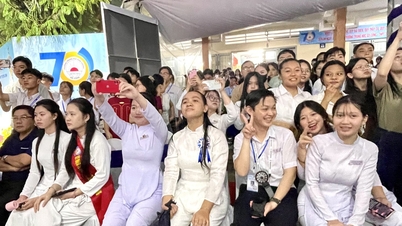











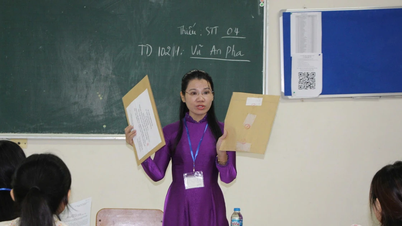

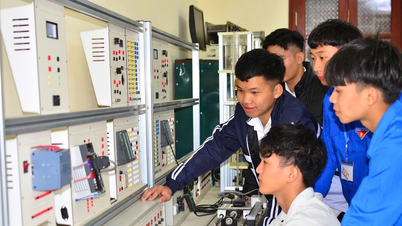
![[Photo] Prime Minister Pham Minh Chinh attends the 1st Hai Phong City Party Congress](https://vphoto.vietnam.vn/thumb/1200x675/vietnam/resource/IMAGE/2025/9/27/676f179ddf8c4b4c84b4cfc8f28a9550)























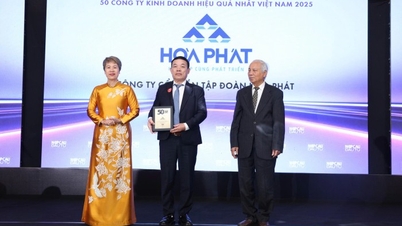




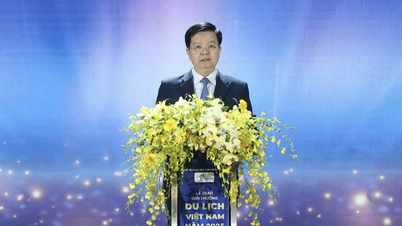








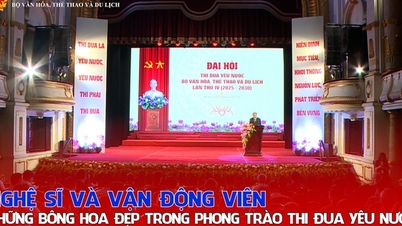




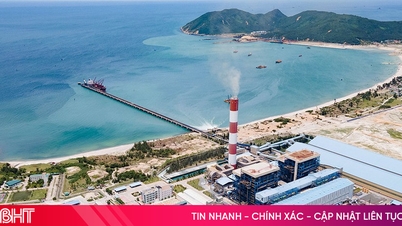





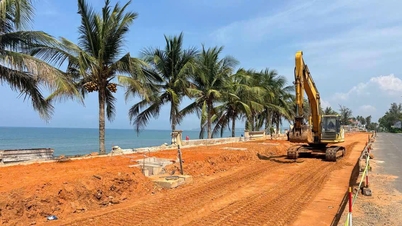
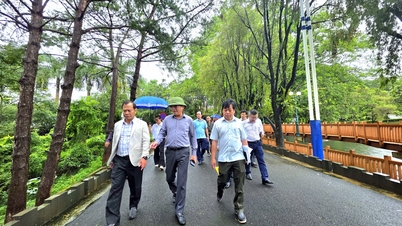














Comment (0)